Algeria
Secretary-General of the Algeria’s long-dominant National Liberation Front (FLN) Abou el-Fadhl Baadji, held a press conference Thursday at the party’s headquarters in Algiers in light of the victory in the weekend’s parliamentary election.
With the initial results -- to be confirmed, of 105 out of the significantly reduced number of 407 seats i.e. a loss of more than 50 seats with control of just a quarter of the new assembly, some local observers say that the result is better than was expected.
Al-Sadiq Boukataya, an official in the National Liberation Front (FLN), appears vindicated.
"Many people believed that the National Liberation Front party, would not reach this number, and they bet the party has ended, and a party cannot occupy the first bloc in Parliament, however, here are the results that became visible to everyone."
The vote saw a record low turnout of just 23.03%t due to boycotts by the long-running Hirak protest movement -- responsible for the resignation of then-president Abdelaziz Bouteflika in early 2019.
Only 5.6 million of more than 24 million eligible voters lodged a ballot at Saturday's polls -- with more than a million invalid votes cast, as per provisional figures of the ANIE electoral board.
Independents came second with 78 seats while the Movement of Society for Peace (MSP), a moderate Islamist party, came third with 64.
The Democratic National Rally (RND), a traditional ally of the FLN and also linked to Bouteflika's rule, took 57 seats.
- 'Total freedom' -
Ahead of the official results, the MSP had said its candidates were in the lead in most regions, warning against "numerous efforts to alter the results".
But Chorfi said that "the foundations of this parliament have been built in total freedom and transparency for the people".
Said Salhi, the vice president of the Algerian League for the Defence of Human Rights, said "the results, unsurprisingly, came from a closed election that was held in a climate of repression".
"It was another missed opportunity for change and democracy," he told AFP.
Louisa Dris-Ait Hamadouche, a political science professor at the University of Algiers, said the record low turnout "shows to what extent this election, like those that preceded it, are not the solution to this crisis".
President Abdelmadjid Tebboune, himself elected on an official turnout of less than 40 percent in late 2019, had put on a brave face regarding the highs rate of abstention and ruined ballots.
"For me, the turnout isn't important. What's important is whether the lawmakers that the people elect have enough legitimacy," Tebboune said Sunday.
The Hirak, which apart from a hiatus due to the coronavirus pandemic had held twice-weekly demonstrations for reform until they were effectively banned last month, had already rejected the polls as a "sham".
After a quota system introduced in 2012 was abolished, Algeria's next parliament will now be almost exclusively male, with only 34 women -- out of 8,000 candidates -- elected, compared to 146 women in the previous assembly.
Hirak had boycotted the vote, as with a constitutional referendum in November that gave additional powers to the presidency and the army.
But voting day was mainly calm, except in the region of Kabylie, where ballot boxes were ransacked and security forces detained dozens of people, rights groups said.
Two prominent journalists detained on the eve of the election and released Saturday, Khaled Drareni and Ihsane El Kadi, condemned their "arbitrary" arrests.




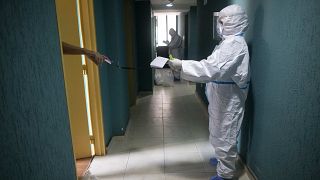
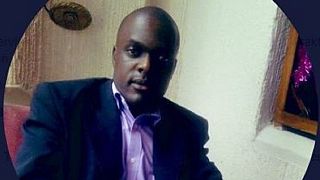
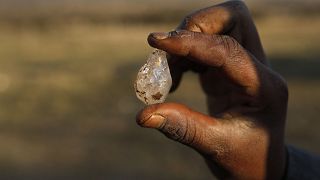
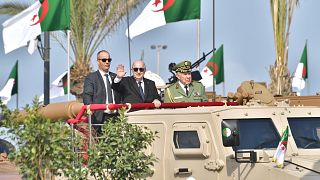
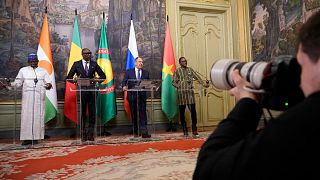
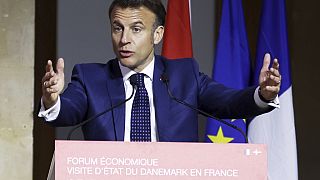



Go to video
Former Utah Rep. Mia Love, the first Black Republican woman elected to the US House, has died
01:51
Coming home: Ghana has granted citizenship to hundreds of African Americans
04:00
Year in Review: African elections in 2024
02:10
Ruling party candidate Nandi-Ndaitwah favorite as Namibia votes
01:44
Mauritius heads to the polls in wake of wiretapping scandal
02:19
Botswana: UDC supporters celebrate election win